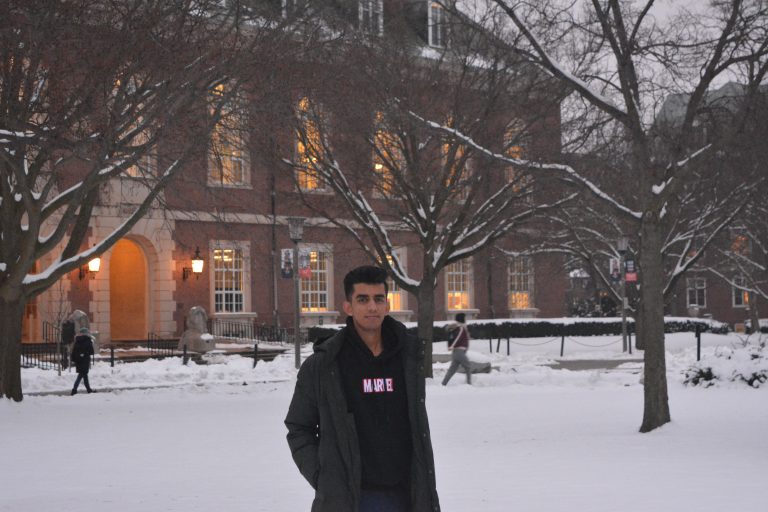Kush Gupta says he panicked when U.S. Immigration and Customs Enforcement (ICE) issued a rule last week barring international students from taking a full online course load for the upcoming fall semester.
The rule would have forced international students to take in-person classes at American universities and colleges this fall. Otherwise, they’d be barred from entering the country and potentially face the threat of deportation proceedings if they were already living in the U.S.
A federal judge announced Tuesday during a court proceeding that the Trump administration had chosen to rescind the restriction.
The announcement was made during a hearing on a lawsuit filed against the Trump administration by Harvard University and the Massachusetts Institute of Technology. The administration faced immediate backlash from colleges and universities when the rule was announced last week.
The University of Illinois system filed an amicus brief earlier this week in support of the Harvard and MIT lawsuit. The U of I system also joined a legal effort led by Illinois Attorney General Kwame Raoul and 17 other attorneys general around the nation challenging the policy from ICE.
In March, ICE relaxed rules that restricted foreign students from taking more than one online class as universities moved courses out of classrooms and online to combat the spread of COVID-19. Now that the restriction has been rescinded, the policy will revert to the directive from this spring that suspended limits on foreign students taking online classes.
Gupta, 20, is a student at the U of I’s Urbana campus studying math and computer science. He is currently living with his family in India.
Gupta says he was worried the ICE restriction would prevent him from coming back to the U.S. and continuing his studies. Now, he says he’s relieved.
“The rule being rescinded is a big win because it allows us international students to get our freedom back and get the ability to decide what is best for us,” Gupta says.
Gupta says now that he’s able to take a full online course load, he can make decisions that make him feel safe without fear of being unable to return to the U.S. or being deported if universities have to shut down again in the fall.
As an international student, Gupta isn’t eligible for federal financial aid. He says he pays full tuition to attend the U of I — which comes to about $40,000 per year. The U of I’s Urbana, Chicago and Springfield campuses collectively enrolled nearly 16,000 international students last fall, which made up nearly 18% of the university’s total student body. Nationwide, international students contributed about $45 billion to the U.S. economy in 2018, according to the U.S. Department of Commerce.
Aside from financial investments, Gupta says international students also bring cultural value to U.S. campuses.
“If you see the bigger picture, there’s a lot more that international students offer that I think is being undervalued by the Trump administration,” Gupta says. He added that the Indian Student Association on the Urbana campus hosts events that showcase Indian culture, educating other students about Indian traditions.
“If they are able to understand different cultures then I think they are more open to different perspectives and different cultural understandings. I think they become more of a whole person,” he says.
Gupta says he is encouraged that the value foreign students provide to U.S. campuses is recognized by universities and colleges. He says the lawsuits that challenged the ICE policy have given him hope.
“This has happened because universities have sued the government. It really shows you the strength of the educational sector in government. It really shows you what power these universities possess,” Gupta says.
Follow Lee Gaines on Twitter: @LeeVGaines

